Side Effect Communication Calculator
Report Your Symptoms
Use this tool to structure your side effects using the "What, When, How Much" framework. Your doctor will appreciate the clarity.
Your Prepared Statement
Every year, 1.3 million people in the U.S. end up in the emergency room because of bad reactions to medications. Many of these cases could have been prevented-if the patient had spoken up earlier. But too often, people stay quiet. They worry their doctor will think they’re overreacting. They’re afraid of sounding like a complainer. Or they just don’t know how to say what’s really going on.
The truth is, your voice matters. If a medication is making you feel worse, not better, you have every right to say so. And when you do, you don’t just help yourself-you help improve care for everyone.
Why Speaking Up Saves Lives
Medication side effects aren’t just annoying-they’re dangerous. The World Health Organization says about half of all treatments fail because patients stop taking their meds. And the number one reason? Side effects. Dizziness. Nausea. Fatigue. Insomnia. Muscle cramps. These aren’t "just part of the process." They’re signals your body is reacting.
When you don’t report these symptoms, your doctor doesn’t know what’s happening. They might think the treatment is working fine. But if you’re too tired to get out of bed, or your legs are cramping so bad you can’t sleep, that’s not normal. That’s your body saying: "This isn’t right."
Studies show that patients who clearly describe their side effects reduce preventable hospital visits by 22%. That’s not a small number. That’s real life-saving impact.
And here’s the kicker: doctors want to hear from you. A 2022 survey found that 78% of patients want to talk about side effects during appointments-but 61% feel rushed. That’s not because doctors don’t care. It’s because visits are short-on average, just 13 minutes. You have to make those minutes count.
What to Do Before Your Appointment
Waiting until the day of your appointment to think about your meds is too late. You need to prepare. Start by keeping a simple journal. Not a fancy app-just a notebook or your phone’s notes app. Write down:
- What side effect you’re feeling (e.g., "dizziness when standing up")
- When it happens (e.g., "30 minutes after taking my pill")
- How bad it is (use a scale of 1 to 10)
- How long it lasts
- Anything else going on (did you skip a meal? Drink alcohol? Sleep poorly?)
One patient on Reddit tracked 37 dizzy spells over four weeks. When she brought that list to her doctor, her doctor finally believed her. Turns out, her blood pressure med was dropping her pressure too low. A simple dose change fixed it.
Don’t just rely on memory. Write it down. Even if it seems small. Your brain forgets. Your doctor doesn’t have your history memorized. Your journal does.
What to Say at the Appointment
Here’s the script that works: use the "What, When, How Much" model.
Instead of saying: "I feel weird," say:
- "I’ve been feeling dizzy every time I stand up, about 20 minutes after I take my blood pressure pill. It’s been happening for two weeks, and it’s about a 7 out of 10 in severity. It’s making me afraid to walk around the house."
That’s specific. That’s clear. That’s actionable.
And if you’re nervous about sounding pushy, use this phrase: "I’m not sure if this is related, but I’ve noticed..." That opens the door without shutting it down. Most doctors will respond with curiosity, not frustration.
Bring your meds with you. All of them. Pills, patches, inhalers, supplements. Put them in a bag. Even if you think your doctor knows what you’re on. Many patients are on 5, 6, even 10 medications. It’s easy to miss one. Seeing the actual bottles helps avoid mix-ups.
Use Tools That Actually Help
You don’t have to do this alone. There are tools designed to make it easier.
The FDA-approved Medisafe app lets you log side effects, set pill reminders, and even generate a printable report to bring to your appointment. In a 2022 study, 87% of users said it helped them track symptoms more accurately.
Or use MedlinePlus.gov-free, official, and easy to understand. Type in your medication name and it shows you common side effects, what to watch for, and when to call your doctor. No ads. No paywalls. Just facts.
And if you’re 65 or older, the National Council on Aging offers a free online course called "Speaking Up About Medications." Over 47,000 people have taken it. Participants reported a 63% boost in confidence to talk to their doctors.
What to Do If Your Doctor Dismisses You
Not every doctor listens well. And sometimes, they’re wrong.
One patient on PatientsLikeMe reported severe leg cramps from a new blood pressure med. Her cardiologist said, "That’s normal." She stopped the med. Two weeks later, she had a mini-stroke.
If your doctor brushes off your concerns, don’t give up. Say: "I understand you think this is normal, but it’s not normal for me. I’d like a second opinion or to try a different option."
You have the right to ask for alternatives. You have the right to ask for a referral. You have the right to find a new doctor if you’re not being heard.
And if you’re in a system where you can access your medical records online (thanks to the 21st Century Cures Act), review them. Look for notes about your side effects. If they’re missing, ask your provider to add them. Documentation matters.
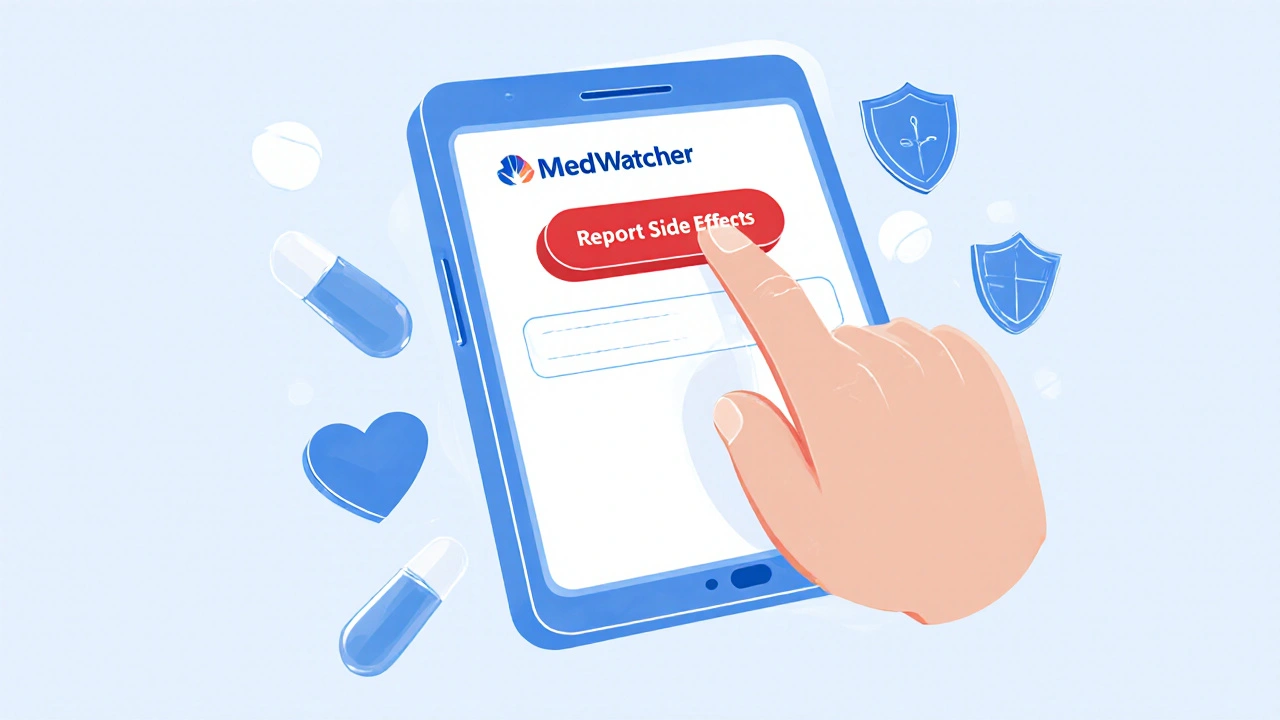
Why This Matters Beyond Your Own Care
When you report a side effect, you’re not just helping yourself. You’re helping build better data for everyone.
Only 1 to 10% of adverse drug reactions get reported to the FDA through official channels. That means most of what we know about drug safety comes from a tiny fraction of patients. But when more people speak up, the FDA sees patterns. They spot dangerous trends. They issue warnings. They change labels. They pull harmful drugs off the market.
The FDA’s new tool, MedWatcher Connect, launched in September 2023, lets you report side effects directly from your phone. In the first month, over 12,000 people did. That’s more than triple the usual monthly reports. That’s change.
Your voice becomes part of the system. And that system protects the next person who takes the same pill.
What to Do If You’re Overwhelmed
It’s okay if this feels too much. You don’t need to be perfect. You don’t need to memorize every side effect. Just start small.
Next time you fill a prescription, ask the pharmacist: "What’s the most common side effect I should watch for?"
Keep a sticky note on your pill bottle with one thing to track: "Headaches?" or "Stomach pain?"
At your next visit, say one sentence: "I’ve noticed [this thing] since I started [this med]. Can we talk about it?"
That’s it. That’s enough.
Progress isn’t about being loud. It’s about being consistent. One conversation. One note. One question. That’s how change happens.
It’s Not Just About Pills-It’s About Control
Healthcare can feel like a machine you can’t control. You’re handed a script. You’re told to take it. You’re expected to just follow orders.
But you’re not a patient number. You’re the person living with the side effects. You’re the one who knows your body best.
Speaking up isn’t being difficult. It’s being smart. It’s being responsible. It’s taking back your power.
And when you do, you’re not just protecting your health-you’re helping fix a system that’s too often silent when patients speak.

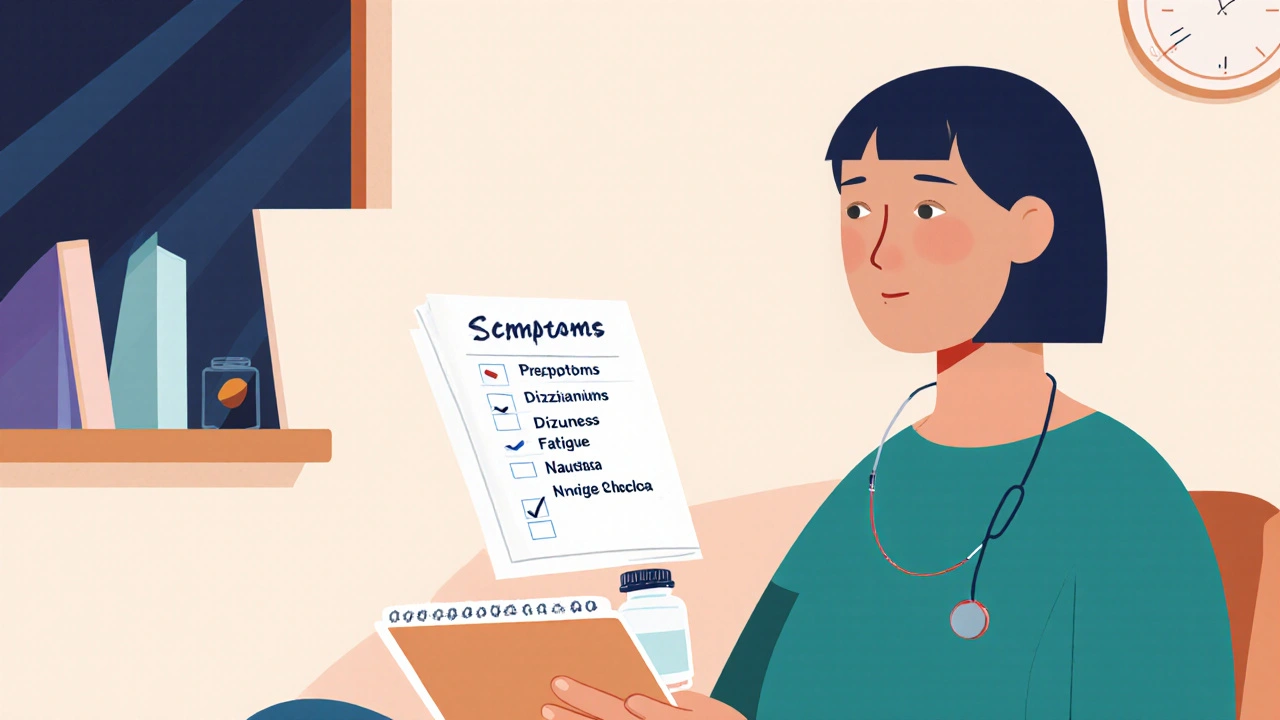

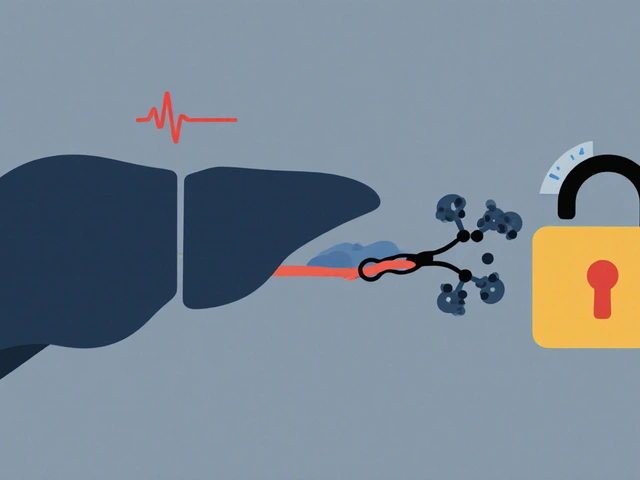

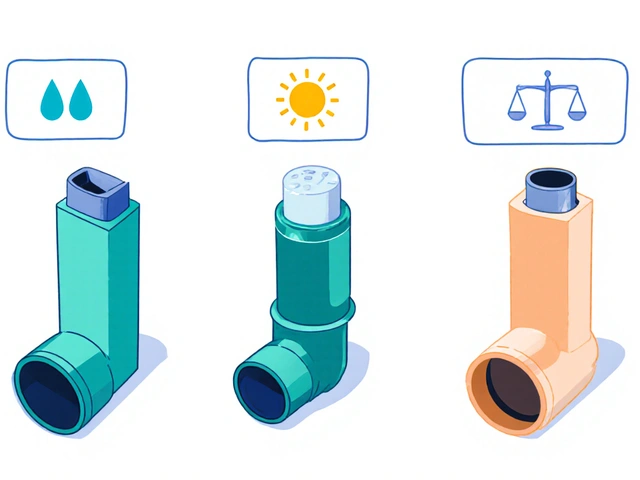
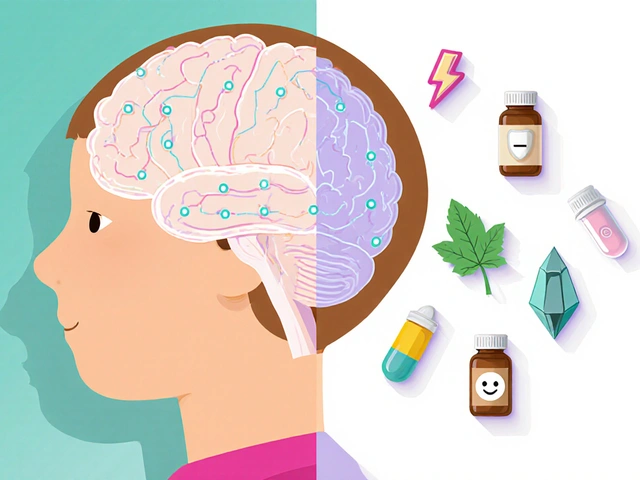
Scott Macfadyen
November 19, 2025 AT 07:01I used to think side effects were just part of the deal until I started taking that blood pressure med and felt like my legs were full of nails every morning. Wrote it down for two weeks-10/10 pain, happened right after breakfast, made me trip over my own dog twice. Doctor thought I was exaggerating. I showed him the log. Changed the dose. I haven’t fallen since. Seriously, keep a damn notebook. It’s not drama, it’s survival.
Chloe Sevigny
November 19, 2025 AT 09:30One is struck by the epistemological asymmetry inherent in contemporary pharmaceutical governance: the patient, as embodied subject, possesses phenomenological data of unparalleled granularity, yet is systematically disempowered by institutional temporal constraints and epistemic hegemony. The ‘What, When, How Much’ heuristic, while pragmatically useful, is merely a palliative adaptation to a system that reduces lived experience to quantifiable variables. The real issue is not patient silence-it’s the medical establishment’s refusal to treat somatic testimony as legitimate evidence.
Denise Cauchon
November 20, 2025 AT 09:05OMG I had the SAME THING with that statin. My legs were cramping so bad I cried in the shower. My doctor said ‘you’re just getting old.’ I told him if he thought I was old, he should try walking like me. I stopped the pill. Three days later I could dance again. I’m Canadian, we don’t complain-but when your body’s screaming, you better listen. #MedicationMatters #NotJustAging
Andrea Johnston
November 20, 2025 AT 19:43People are so quick to blame doctors when they’re the ones who don’t track anything. I’ve seen patients come in with 12 meds and say ‘I think something’s off’-but can’t tell me which one or when. You think the doctor’s gonna guess? No. You think they have time? No. If you can’t be specific, don’t be surprised when they tune you out. It’s not malice-it’s math. You’re one of 20 people today. Be the one who makes it easy.
Victoria Malloy
November 22, 2025 AT 01:20Just wanted to say thank you for writing this. I was so scared to speak up after my last doctor rolled his eyes when I mentioned the dizziness. I started writing down the times I felt off-just one line a day. Took it to my new doctor. She actually listened. Changed my med. I’m sleeping again. You’re right-it’s not about being loud. It’s about being consistent. One note at a time.
Alex Czartoryski
November 23, 2025 AT 06:13Y’all are overcomplicating this. I just told my doctor: ‘This pill is turning me into a zombie.’ He said ‘cool, we’ll switch.’ Done. No journal. No apps. No 10-point scales. Just said it like it is. If you can’t say ‘this sucks’ without a PowerPoint, you’re the problem. Doctors aren’t mind readers. But they’re not idiots either. Say what you feel. Move on.
Gizela Cardoso
November 23, 2025 AT 21:49I started using the Medisafe app after my mom had a bad reaction to a new heart med. It flagged a potential interaction I didn’t even know about. I printed the report and brought it to her appointment. The doctor said, ‘I’m glad you caught that.’ She’s been fine since. You don’t need to be a superhero. Just use the tools. They’re there for a reason.
Ancel Fortuin
November 24, 2025 AT 03:02Of course the FDA wants you to report side effects. They’re the ones who approved the damn drugs in the first place. This whole ‘speak up’ campaign is just a distraction. The real problem? Pharma bribes doctors, regulators sleepwalk, and now they want YOU to be their watchdog. You think your sticky note is gonna stop Big Pharma? Wake up. The system’s rigged. Your ‘voice’ is a marketing tactic to make you feel like you have power while they keep selling poison.
Hannah Blower
November 25, 2025 AT 23:52Let’s be honest-this post reads like a corporate wellness pamphlet written by a PR firm with a sociology minor. The ‘What, When, How Much’ framework is a Band-Aid on a hemorrhage. You’re asking patients to perform emotional labor to compensate for systemic failures in medical education, time allocation, and profit-driven drug development. The real solution isn’t better journaling-it’s defunding the pharmaceutical lobby and rebuilding healthcare as a human right. But that’s too radical for Reddit, isn’t it?
Gregory Gonzalez
November 27, 2025 AT 03:23Interesting how the article conveniently omits that 70% of reported ‘side effects’ are psychosomatic or caused by noncompliance. But sure, let’s pretend every weird feeling is a drug reaction. Meanwhile, the real crisis is overmedication-patients on 8+ drugs because no one wants to say ‘stop.’ You don’t need a journal. You need a doctor who knows when to stop prescribing. But hey, keep tracking your dizziness. Maybe it’s just stress. Or caffeine. Or life.